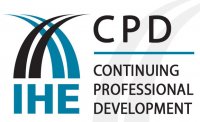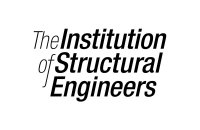Temporary works (TW) are an essential component of any construction project. The success or failure of a project often depends on the proper design and execution of the TW approach adopted.
The newly revised B.S. 5975:2008 has been extensively modified to cover the control and supervision of TW and address concerns on Health and Safety issues. It is therefore important that site supervisors are aware of current standards that affect them and they need to be alert to potential problem areas that can arise in TW.
This temporary works supervisor course aims to improve the delegates' ability to supervise and monitor the implementation of commonly encountered TW methods
On completion of this course, delegates will be able to:
- Appreciate the importance and function of TW relating to overall project objectives
- Be able to produce risk assessments for conventional TW systems
- Understand the function and importance of permits to load/unload TW
- Appreciate the control structure for TW site operations required by BS 5975
- Avoid many of the common pitfalls found in conventional TW
- Establish how to find information relevant to loads applied to typical TW systems
- Know how to identify and react to changes arising on site can have significant effects on TW performance
- Appreciate the inspection and checking procedures and responsibilities of those in charge of TW
Course Outline:
- The role of TW in construction projects
- Legal and contractual issues in TW
- Relationship between BS5975 and Health and Safety legislation
- The rational behind BS5975 - the code of practice for falsework
- The loads that the TW are required to support
- Scaffold and support systems - types and key stability issues
- Formwork - basic components, methods and performance issues
- Underpinning - methods and critical issues
- Piling - types and operational issues
- Earthworks - excavation, trenching and embankments, effects of ground water and changing conditions
- Influence of the site environment on TW - access, services, adjacent paths roads and railways, drainage etc.
- Cranes - types, limitations, and ground interaction
- Checking and inspection process for TW
- Assessing risks in temporary works
Mode of Delivery:
- An examination and discussion of key issues, using PowerPoint presentation
- Discussion of problems that have occurred and an explanation of how they could have been avoided
- Group Exercises in preparing a risk assessment for specific site conditions
- Discussion and review
Benefits of Attending:
- Be more effective in performing their roles and duties with respect to TW
- Have an increased ability to detect site factors that may compromise the successful implementation of a TW design
- Understand the sensitivity of standard TW systems to changes that can cause potential failure or collapse
Intended For:
- Site supervisors
- Less experienced and/or recently qualified engineers
- Site safety advisors
Pre-Course Requirements:
- Have a background awareness of basic temporary works
- Have experience of site operations
- Be involved in the supervision of construction works
- Complete a pre-course questionnaire








